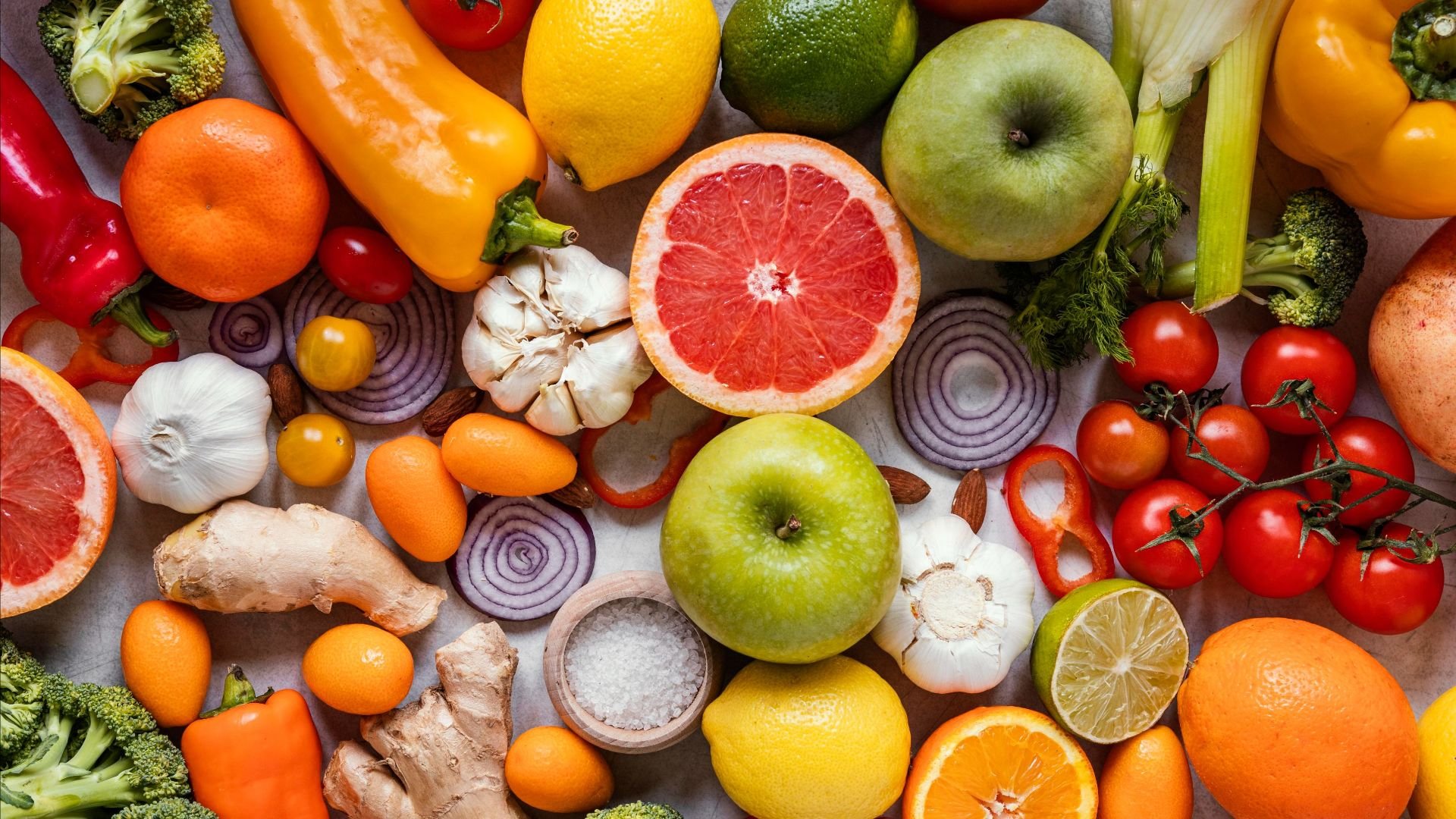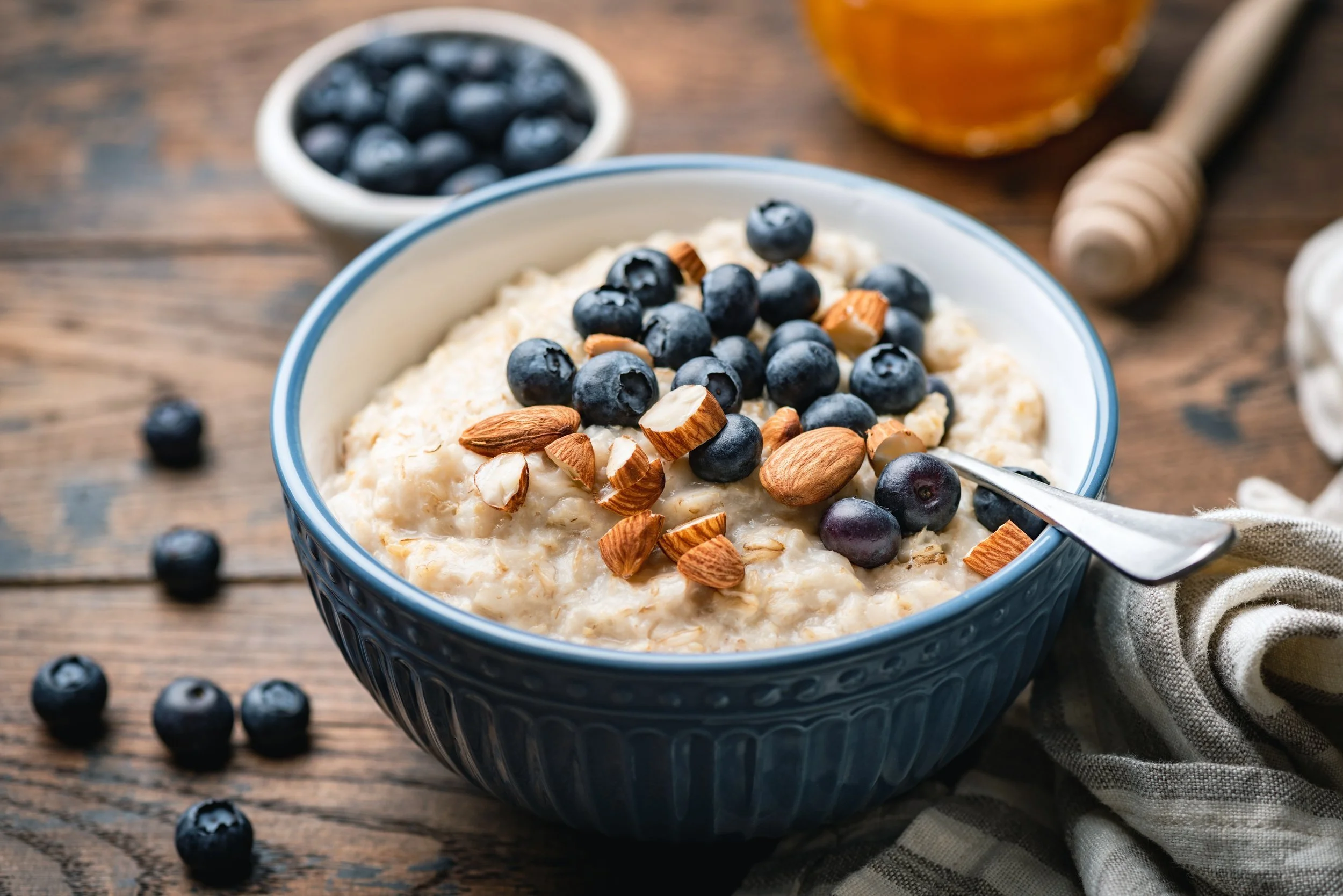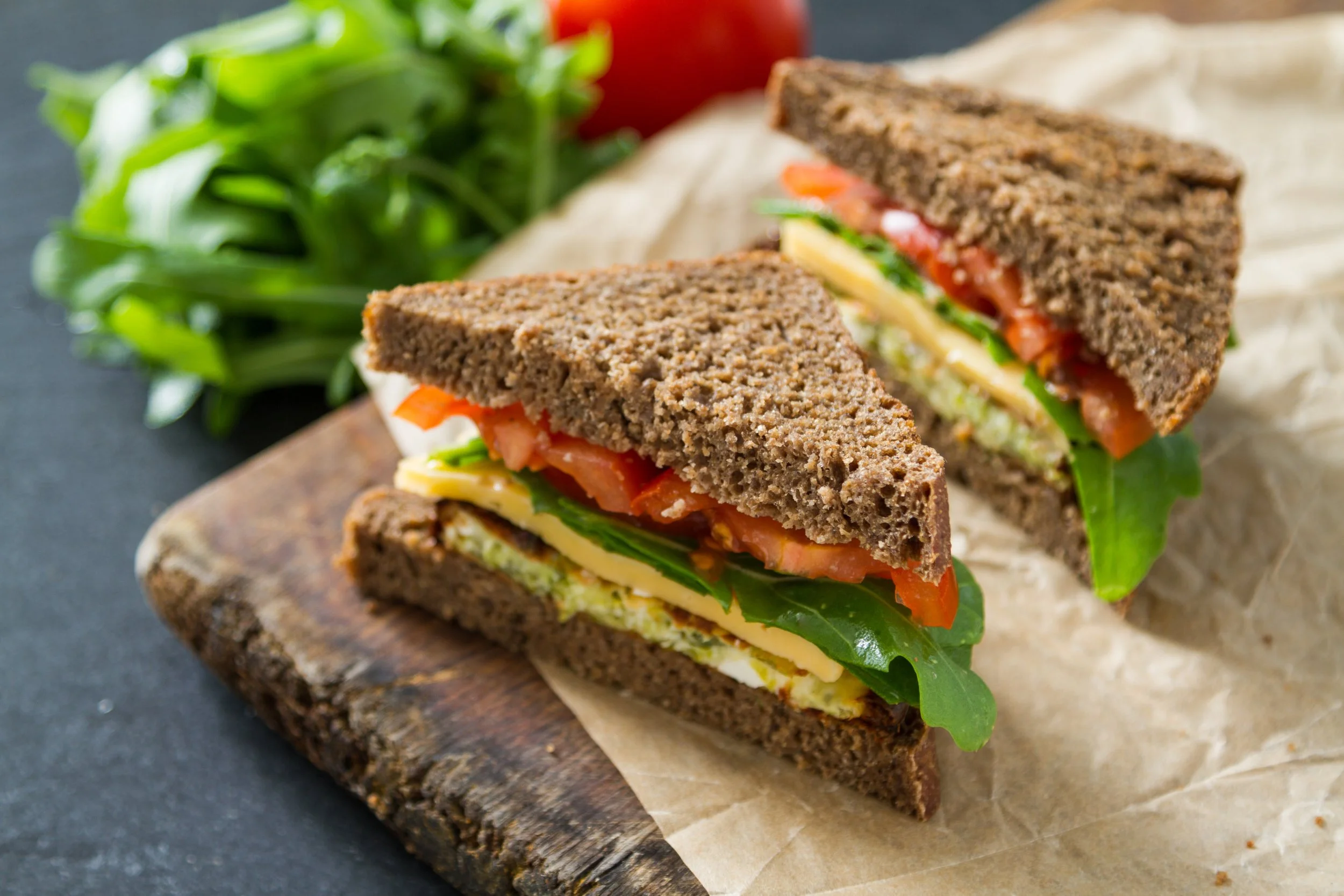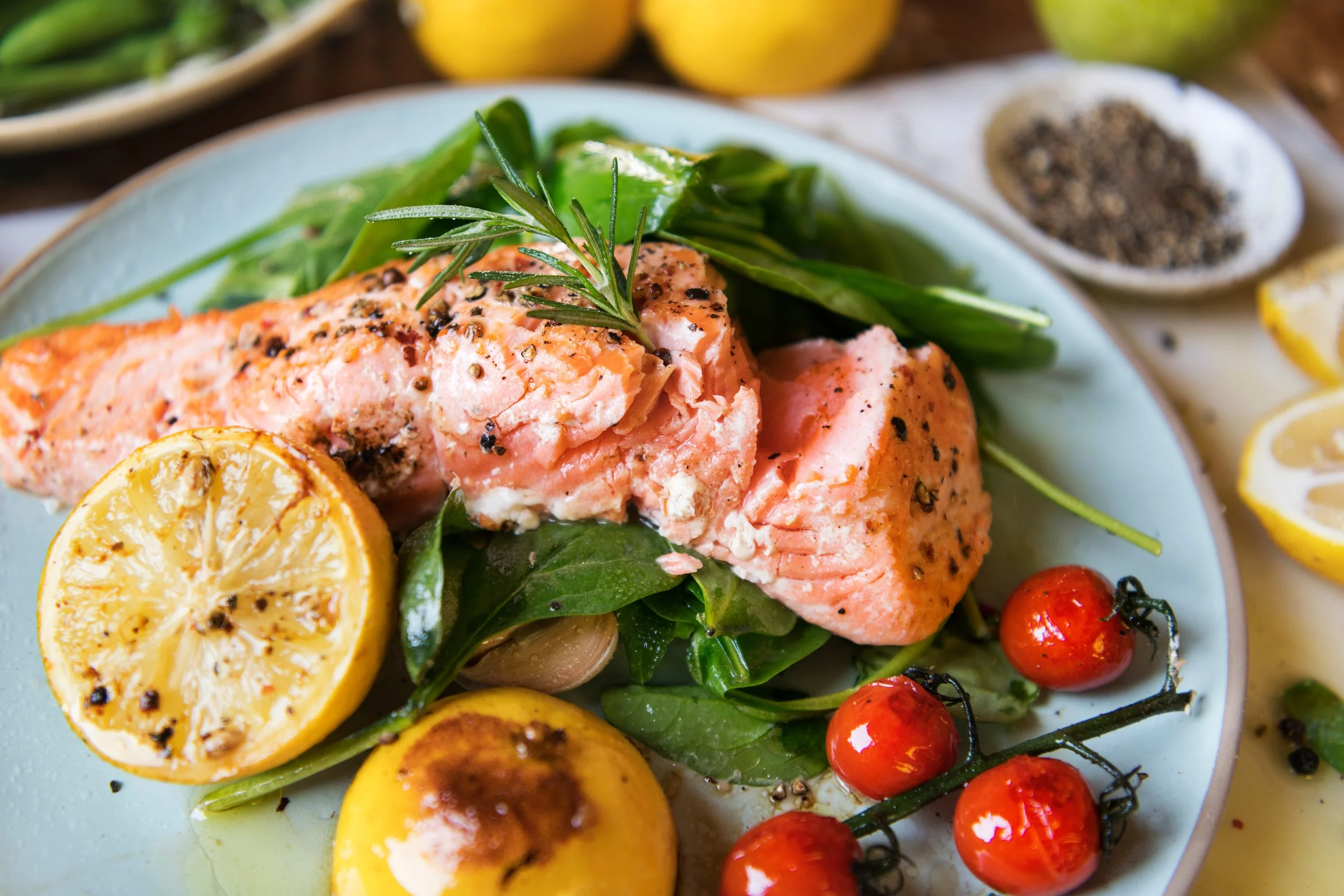
LET’s get your nutrition in shape
WELCOME TO MY TED TALK ON NUTRITION
Depending on what your goals are at this point, this page will be useful to you in different ways. Maybe you are looking for some food related inspiration or need some new ideas to try in the kitchen? Maybe you want to lose weight and need some guidance on how to do that? Maybe you want to build muscle and need a nutritional plan which is going to align with your goals? Whichever one of these is you, we are here to help, guide and support you on this exciting journey!
Our aim for this page is to give you the knowledge, tools and steps to build yourself a nutrition plan that works for you which you can stick to. A plan that aligns with your lifestyle, body type, energy requirements and eating habits.
THE IMPORTANCE OF NUTRITION
Quite simply, nutrition is crucial when building a body for life and there is no way of getting around this. Here are the reasons why:
It affects how we feel - physically, emotionally and mentally.
It impacts our energy levels which then subsequently impacts our motivation.
It helps prevent illness and disease.
It helps to repair and rebuild our muscles.
It also helps us stay in shape, looking fit and strong!
balance
Building a body for life is all about balance. We want to help you build healthy habits into your life that you can sustain - it is impossible and unrealistic to expect yourself to follow a rigid diet plan all the time. To achieve long term changes we need to build long term habits and enjoy the process! This means eating mindfully, being flexible when you need to be, and planning ahead so that you can make healthier choices before you get to that desperately hungry stage! We never make sensible choices when we go food shopping hungry!
Everyone’s body is different
Have you ever thought, “how can they eat whatever they want and put on no weight?”
Well, this is because our body’s energy requirements vary greatly from person to person. And there are so many things that influence this. From sleep, to genes, to hormones; the list is never ending!
So what we are trying to say is, achieving individual goals is a little bit like a science experiment. You may have to trial a variety of methods and see what works best for you.
Fitness tracking apps can support you with this by estimating the amount of energy your body needs to burn, but again these apps do not take into account the uniqueness of your body and your circumstances. So again, we would advise using these tracking apps as a guideline, whilst also being mindful that this is not something we can use a one size fits all approach with.

Right, LEt’s learn
Time to learn everything you need to build a solid nutrition plan.
The topic of calories and calorie counting can be a controversial one. So here is a little more information on what calories actually are and how to have a healthy awareness of them without obsessing over them.
CALORIES
-
A calorie is a unit of measurement describing how much energy a particular food or drink provides us with. On food packaging, calories are displayed as kcals (kilocalories). You may hear people talking about how many calories they have burnt during a gym session or a run, however it is important to note that we also burn calories just through our daily bodily functions. In short, we need calories just to exist!
-
Again, this idea is a controversial one. Some swear by it; some hate the idea! We are not big advocates of obsessing over calories, as ultimately this is not a sustainable and healthy way to live. However, it is worth having a general awareness of approximate calories (because they will be approximate even on food packaging) as this is both useful and informative.
-
The process of ‘calories in vs calories out’ is often oversimplified. In theory it appears to be simple: if you eat excess calories and do not burn them off, you will gain weight and vice versa. However, unfortunately, it isn't quite as clear cut as this. So bare in mind that, even though in theory this concept is accurate. There are a whole host of factors to negotiate to get this just right.
-
Bearing all the above in mind. If your goal is to lose weight, then 0.5kg of body fat equates to roughly 3500 calories. So, over a week you should be aiming for a realistic deficit of 500kcals per day. If your goal, however, is to build muscle then you need to ensure that you are at least eating your recommended daily allowance and recommended protein. Again, we can help you with all this.
MACRONUTRIENTS
Macronutrients or macros are the proteins, fats and carbohydrates our bodies need. These are all vital in ensuring the body receives enough energy to function optimally.
-
Proteins consist of strings of molecules called amino acids. Our body needs 20 amino acids but 9 of these are called ‘essential amino acids’ because our body cannot generate these, therefore it is really important they are present in our diet. A protein is complete when it consists of all 9 amino acids. Animal protein tends to be complete as are some plant based proteins such as soya and quinoa. Other foods can be eaten together to becomi a complete protein.
We recommend you aim to consume 1.6g of protein per kilo of body weight per day - this will keep you fuller for longer and help you to optimally build and repair muscle.
-
Fat also plays an incredibly important nutritional role in our bodies. We need fat to absorb fat soluble vitamins to produce hormones and leave us feeling fuller for longer. Omega-3 fats are also crucial for balancing inflammation levels, helping with brain function and improving heart health.
-
Carbohydrates in the form of simple sugar glucose is our body’s preferred energy. This is also crucial for the brain.
-
Fibre is a type of carbohydrate which massively benefits our gut health, bowel movements and cholesterol.

RIGHT, LET’s MAKE THIS PLAN
Now you’ve got the knowledge, let’s put it into action with simple steps to build your own nutrition plan.
Don’t worry if you’re feeling a little overwhelmed with all this info - we just wanted to be thorough. The main things you’re going to want to focus on are:
eat things you enjoy eating
-
be mindful of the calories you’re consuming
-
makE sure you’re eating enough protein
-
Your Basal Metabolic Rate (BMR) is the amount of calories your body needs to achieve its most basic (basal) functions. Yes, just existing burns calories! We will calculate this for you, however, remember that this is approximate and will need experimenting with your diet in order to reach your exact goals.
-
Once we have established what your goals are, we can calculate your target calories and macronutrients (protein, fats and carbohydrates). We highly recommend you keep a food diary , particularly in the initial stages. You can also use fitness tracking apps to help you monitor this. Keeping track of what you’re eating is a really useful tool to help us identify eating habits and adjust your diet to suit your goals.
-
Again, there is no fixed rule for when you need to eat. Whether you are someone who likes to intermittently fast or eat three solid meals a day, it’s about what works for you!
A couple of things to consider for fuelling your workouts:
If you are eating 2-3 hours prior to a session, the meal should be high in starchy carbohydrates like potatoes, pasta or rice. This will help to provide longer lasting energy. Whereas if you are eating within an hour before a session, the meal should be rich in simple carbohydrates like fruit for a faster acting energy.
-
Getting your nutrition in shape is a great opportunity to make healthy meals that you really enjoy eating! Sustainable and healthy choices do not have to be foods you don’t enjoy - otherwise there is no way that you will stick to it! Again, keeping a food diary will help us to establish the foods you cannot possibly live without and the foods we can swap for healthier alternatives. You might even discover some new options that you didn’t realise existed.
-
So, once we have your BMR, target calories and suggested macronutrients, you can begin to build your diet plan. This might mean trying some new recipes or making tweaks to some of the meals you already make and enjoy. We can help guide you with recipe ideas and even example meal plans.
-
Fitness apps and smart watches can really come in handy when you are getting started. These enable you to approximately track what you have eaten and how much physical activity you have done. We will then monitor this for the first month and then adapt as necessary. Remember, finding what works for you is a little bit like a science experiment and we have o constantly adapt. But don’t worry, we are here to help you on every step of the journey!
-
If all of the above was a bit much, here’s the TL;DR…
We’ll help calculate how many calories you should be roughly aiming to consume based on how many calories you will be roughly burning.
We’ll help you create a nutrition plan that you’ll be able to stick to, ensuring you eat foods you enjoy and get enough protein in!
We’ll constantly track your results and continue to adapt your diet and training plan accordingly.
We’ll support you on your journey and be here to answer any questions along the way.
HOW TO BUILD YOUR NUTRITION PLAN
-
-
Try and eat at home as much as possible as then you have complete control over what you are eating.
-
If you do eat out try and choose a healthier option - think protein and salad/veg - try and avoid fries!
-
You might want to swap your oil into a spray bottle as this helps to control how much you use. Keep in mind that oils, butter and ghee are easy to overuse when cooking.
-
Spices are your friend - they help make things tasty - use them abundantly!
-
You want to make as many healthy switches as you can. If you are having a sweet craving then protein shakes are always good and you can make them nice and sweet. See below for some inspiration!
-
There is nothing wrong with white bread/pasta but whole grains will keep you fuller for longer and they have added nutritional benefits.
-
EXAMPLE MEAL PLAN
Female, 70kg, 40 years old
Goal: Lose body fat
Initial calorie target: 2000kcal
Protein target: 112g protein
Meal 1:
Apple Crumble Overnight Oats
550kcal, 44g protein
Meal 2:
Greek Yoghurt, Berries
150kcal, 17g protein
Meal 3:
Chicken Salad Wrap, Apple, Salty Popcorn
625kcal, 42g protein
Meal 4:
Protein Shake
150kcal, 25g protein
Meal 5:
Butternut squash & chickpea curry with rice
400kcal, 14g protein
Totals:
1875kcal, 142g protein
Copyright © 2025. All Rights Reserved. Fit as a Daisy is a brand owned by Two Palms LLC.






